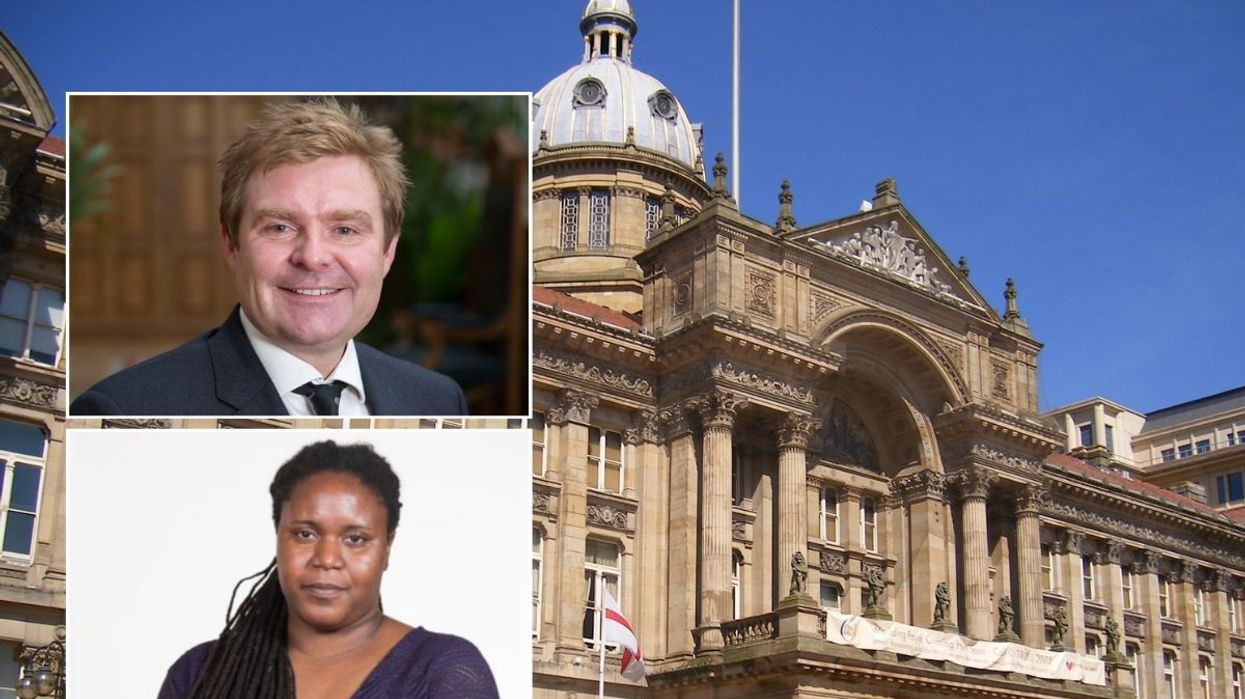Birmingham City Council 'BANKRUPT' with blame pinned on inept Labour councillors

Councillors John Cotton and Sharon Thompson admitted that the Section 114 was necessary to help the council find its financial footing
The largest local authority in Europe has issued at Section 114 notice
Don't Miss
Most Read
Trending on GB News
Birmingham City Council has declared themselves effectively bankrupt with the blame being place on Labour councillors.
The council, the largest local authority in Europe, has issued a Section 114 notice, which prevents all spending apart from on essential services.
In June, Birmingham called an unofficial spending freeze after it revealed a £750m bill to settle equal pay claims.
Tories have blasted Labour for their failure to deal with equal pay bill, which is equivalent to the council's entire annual spending on services.

Tories have blasted Labour councillors for failing to deal with equal pay claims which will negatively affect Birmingham residents.
Wikimedia Commons
As a result of the bill, the council has said they will have to reprioritise what they spend taxpayer money on.
Opposition leader, Robert Alden, said the council had "failed to show the proper speed and urgency needed to tackle equal pay".
"Labour's failure in Birmingham has become clear for all to see, what Labour pledged was a Golden decade ahead to voters in 2022 turns out to be based on budgets in 20/21 and 21/22 that did not balance and were unfunded.
"Combined with Birmingham Labour’s refusal to deal with equal pay over the last decade this has created this mess where residents will now lose valuable services and investment," he added.
The council released a statement today, which read: "Today’s issuing of a Section 114 Notice is a necessary step as we seek to get our city back on a sound financial footing so that we can build a stronger city for our residents."
Failure has also been pinned on the Oracle IT system, which has requires £46.53 million to be spent to fix its problems.
The system was brought in to oversee internal processes such as payments, data managements and background checks.
WATCH BIRMINGHAM RESIDENTS REACT TO THE COUNCIL HERE
Councillors have spoken of the challenges the local authority was facing.
"Like local authorities across the country, it is clear that Birmingham City Council faces unprecedented financial challenges, from huge increases in adult social care demand and dramatic reductions in business rates income, to the impact of rampant inflation," councillors John Cotton and Sharon Thompson said.
They said that the Section 114 was necessary in order to help the council find its financial footing again."
Despite the challenges that we face, we will prioritise core services that our residents rely on, in line with our values of supporting the most vulnerable."
Liam Halligan, economics and business editor at GB News, said that the bankruptcy would negatively affect Britain internationally.
"It’s really interesting that the guild yield has spiked. So international investments are going ‘crickey this is bad’, the British government may have to bail them out unless they can get their house in order'.
"It’s just become a lot more expensive on this news for the BG to borrow money, to pay money, to pay for everything across the country as a whole. This is not just a Birmingham thing, it’s all interlinked."
LABOUR LATEST:

Birmingham city centre
Geogrpah
Alan Miller, co-founder of Together Association, championing free speech, criticised Birmingham City Council's decision to implement a clean air zone, without the backing of the public.
Speaking to GB News today, Miller said: "Tens of thousands of people in Birmingham have not paid, they appealed them, and the appeals have been upheld which meant that the council’s attempts to do a cash grab and just to generate it this way where the majority of people in Birmingham did not want this have backfired."
He said this is one example of many of councils using restrictions to tax residents in an unfair way, telling Ulez and other organisations promoting local low emission zones to "take note"
By ordering a Section 114 notice, the council is effectively asking the government for help to finance its budget.
When in place, it restricts all spending with the exemption of protecting vulnerable people and key services.








